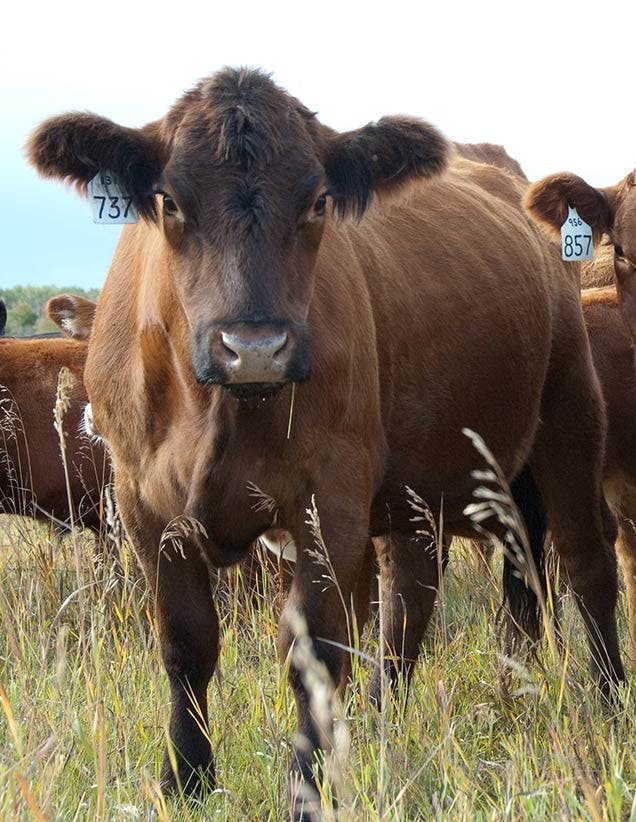This collaborative project brings together industry investment from Results Driven Agriculture Research ($304,865), Beef Cattle Research Council ($235,492), Alberta Beef Producers ($61,050), and additional in-kind research funding support from Agriculture and Agri-food Canada (AAFC), Concordia University of Edmonton (CUE), the Saskatchewan and British Columbia Forage Councils will total over $1 million dollars.
The PRP is a four-year project (2022 to 2026) led by forage researcher Dr. Vern Baron at AAFC in Lacombe. It will investigate potential low-cost and sustainable approaches for improving yields on old low-yielding perennial grass stands. This project will include evaluating the impacts of sod-seeding, grass-legume mixtures, and grazing on forage productivity, as well as physical, chemical and biological health indicators for soil. The research site will be at the AAFC Lacombe Research Centre in Alberta, and demonstration sites will be set up in other parts of Alberta, British Columbia, and Saskatchewan.
PRP team members include Dr. Emmanuel Mapfumo (associate professor, environmental science, CUE), Darren Bruhjell (range and forage specialist, AAFC, Edmonton), Campbell Dick (purebred livestock breeder, North Slope Inc., Bawlf, AB), and Serena Black (manager, BC Forage Council, Prince George, BC).
“I am really excited to work on this collaborative Pasture Rejuvenation Project between CUE, Agriculture and Agri-Food Canada, British Columbia Forage Council, and Saskatchewan Forage Council – the outcome of this research could reduce economic pressure on the livestock-pasture industry if low-cost approaches, such as sod-seeding and inclusion of legumes in grass stands, improve hay and pasture yields.” — Dr. Emmanuel Mapfumo – Associate Professor, Environmental Science, Concordia University Edmonton
“Industry has come together to invest in furthering producer knowledge translation pasture and hay productivity including a cost-benefit analysis aimed at producers – we are excited for the launch of this project and the recommendations that will be generated from the research for Alberta producers.” — Clinton Dobson, Research Director for Results Driven Agriculture Research
This exciting research aligns with the recently introduced Bill C-203 on the National Soil Health Strategy for Canada, which focuses on best practices for improving and sustaining soil health.
This funding will provide opportunities for undergraduate and graduate students interested in conducting research on forage productivity, soil physical, chemical and/or biological health.
About RDAR
RDAR’s mandate is to target strategic investments in producer-led, results-driven agriculture research to power the competitiveness, profitability, productivity, and sustainability of agriculture in Alberta. As a not-for-profit corporation, RDAR’s funding comes from the Government of Alberta, the Government of Canada, and the Canadian Agricultural Partnership program. More details can be found at rdar.ca
About the Beef Cattle Research Council (BCRC)
The BCRC is Canada’s industry-led funding agency for beef, cattle and forage research. It is funded through a portion of the Canadian Beef Cattle Check-Off, as well as government and industry funding, and is directed by a committee of beef producers from across the country. More details can be found at www.beefresearch.ca
Alberta Beef Producers (ABP)
More than 18,000 beef cattle producers who are stewards of the industry in this province have one organization that represents their collective interests: Alberta Beef Producers. ABP’s mission is to strengthen the sustainability and competitiveness of the beef industry for the benefit of beef producers in Alberta. More details can be found at www.albertabeef.org
